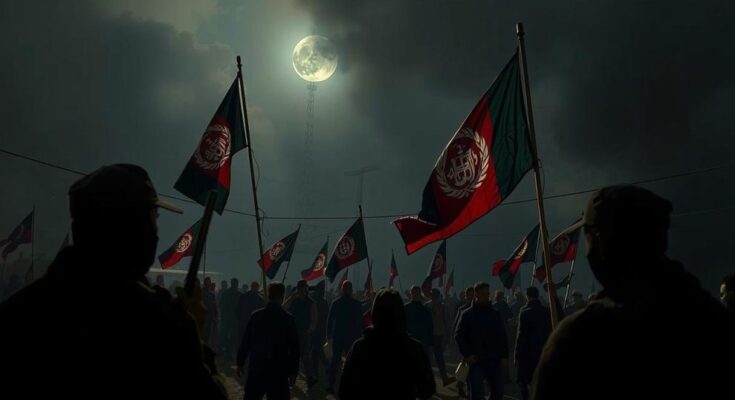A public execution in Afghanistan has drawn fierce condemnation from the UN, highlighting severe violations of human rights by the Taliban since they regained power in 2021. Calls for an immediate end to such barbaric practices, a moratorium on executions, and improvements in legal processes are urgent. The incident reflects the broader human rights crisis in the country, particularly affecting women and girls.
In a harrowing incident that has sent shockwaves through international circles, a public execution in Afghanistan was held in a sports stadium, provoking intense condemnation from the United Nations. Senior UN officials are urgently calling for the Taliban to cease such brutal practices. Since the Taliban’s resurgence in August 2021, reports have emerged detailing a disturbing return to public executions and harsh corporal punishments, which starkly contrast with fundamental human rights norms and obligations that Afghanistan is bound to observe. The execution, which unfolded in Gardez, Paktya province, starkly illustrates the alarming descent into a regime of fear and punishment. Richard Bennett, the UN’s Special Rapporteur for human rights in Afghanistan, stated, “I condemn today’s horrific public execution,” characterizing it as an unmistakable violation of human rights. He reiterated the urgent need for the Taliban to halt these atrocious punishments immediately. The UN Assistance Mission in Afghanistan (UNAMA) articulated that public executions are not only contrary to Afghanistan’s commitments to human rights but also demand an immediate moratorium.
This disturbing event occurs amidst rising international concerns regarding the resurgence of capital punishment and violations of human rights under the Taliban rule. Since reclaiming authority, the Taliban has reintroduced a spate of punitive measures, including public executions, floggings, and other corporal acts that align with their harsh interpretations of justice. A slew of edicts has further restricted rights and freedoms, especially for women and girls, leading to widespread fears about the overall human rights situation in Afghanistan. The Taliban’s repressive actions have left many wondering about the practical implications for ordinary citizens and the moral stance of the international community. The stark realities paint a picture of a nation grappling with rights violations and deep-seated societal repression, casting a shadow over its future prospects for peace and stability.
As the world watches, the calls for action against the Taliban’s human rights violations grow louder. The recent public execution underscores a troubling trajectory in Afghanistan’s governance—one that reinforces oppression rather than alleviating the suffering of its people. UN officials emphasize the need for an immediate end to these brutal practices and restore essential legal rights for all. In a time marked by instability, the echoing cries for justice and respect for human dignity are more critical than ever.
Original Source: europeansting.com



